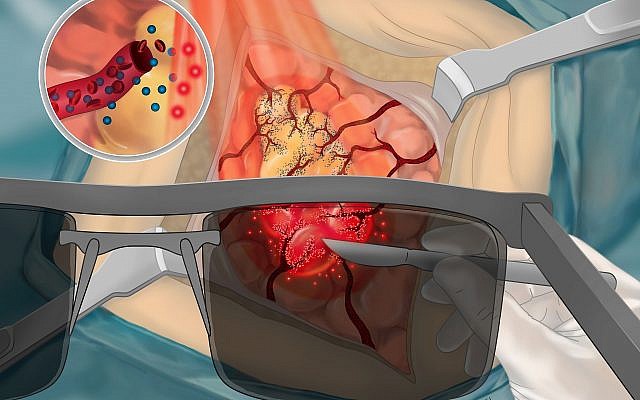Researchers at Tel Aviv U. develop turn-on probes to pinpoint cancer cells

Researchers at Tel Aviv University have developed smart nanoprobes that turn on a florescent light in presence of cancerous cells, which they say “may dramatically improve” post-surgical outcomes for cancer patients.
The researchers created a so called “smart probe” that, when injected into a patient a few hours before surgery to excise a primary tumor, may help surgeons pinpoint where the cancer is situated down to several cancer cells, permitting them to guarantee the removal of more cancer cells, and with the least possible damage to surrounding healthy tissue, they said in a statement.
The interdisciplinary team behind the research was led by Prof. Ronit Satchi-Fainaro, chair of the Department of Physiology and Pharmacology at TAU’s Sackler Faculty of Medicine. The study was published in May in Theranostics.
In many kinds of cancers, it is often not the primary malignant tumor, but rather metastasis — the spread of lingering cancer cells to other parts of the body — that kills patients.
“In cases of melanoma and breast cancer, for example, the surgeon may believe he has gotten everything — that he has excised the entire tumor and left the remaining tissue free of cancer. Even if only a few cells linger after surgery, too few or too small to be detected by MRI or CT, recurrence and metastasis may occur,” Satchi-Fainaro says. “Our new technology can guide the surgeon to completely excise the cancer.”
The researchers based their work on previous studies, which showed that cancerous cells have an increased number of enzymes called cysteine cathepsins, which are present in high numbers in a variety of tumors. Healthy cells have small quantities of these cathepsins. Based on that knowledge, the researchers designed the probes to identify the cancer cells,” Satchi-Fainaro said in a statement.
Read More: Times of Israel
